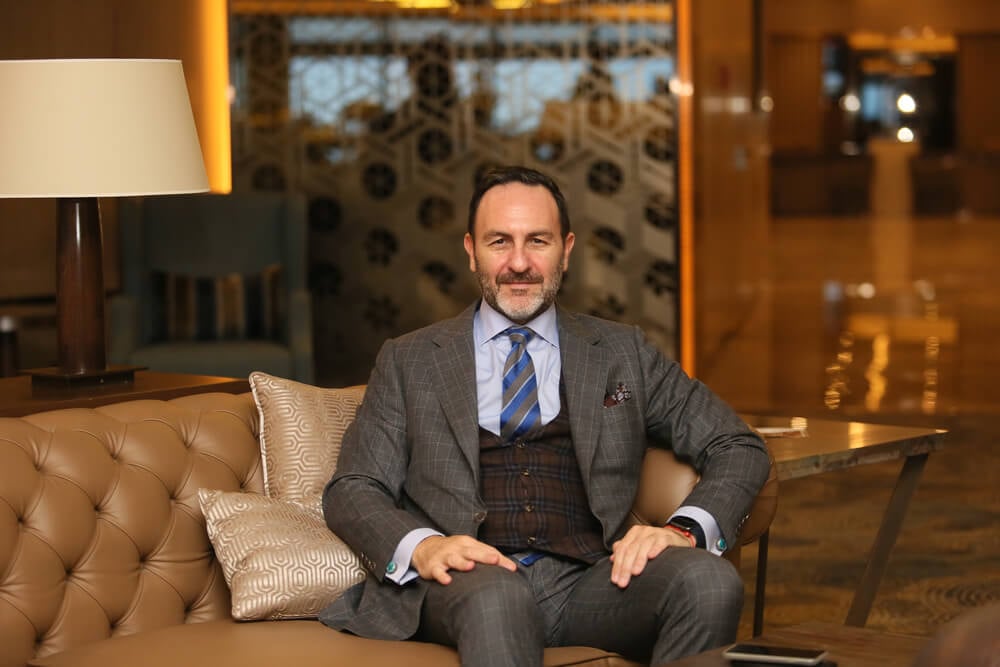"When looking at world history, we have learnt that power does not necessarily mean wisdom and justice," says Yuval Noah Harari in his new book. The first page of the book titled NEXUS starts with this observation. Humanity's continued abuse of power leads it towards self-destruction. He also emphasises an important issue: "Never summon a power you cannot control."
Harari makes a crucial point by metaphorically referring to ancient stories that we all know well: individual initiative does not move power. Power emerges when a large number of people come together. In short, power does not gain strength unless a movement is collective.
Like his predecessors Aldous Huxley, Michel Foucault, John Stuart Mill, Jean-Jacques Rousseau, and Ibn Khaldun, Harari warns about the danger of being governed by the "worst" in society.
Almost all of these valuable thinkers have discussed the danger of consolidating power in a single person or group. They also mentioned the risk of civil society becoming politicised over time.
Therefore, they argued that the social contract should be based on free will, not on what the masses like or dislike.
"Our problem is actually a network and information problem," says Harari. In fact, he states that information is the glue of all networks. Therefore, for good governance, everyone in the network must have access to accurate information.
Therefore, if some information is free for some decision-makers and restricted for others, it cannot be called a network. Truthful information must circulate at every point in the network to ensure decisions are made correctly.
The masses act not with logic but with interest or benefit
However, he adds that while individuals are in pursuit of true information, people tend to cling to false news and dogmas collectively. Despite facing disasters in sports, justice, education, and more, we personally demand the truth while collectively opting for distorted information that pleases us.
Otherwise, a match watched by millions wouldn't draw fans for millions of different analyses. The masses act not with logic but with interest or benefit. The story that aligns with their interests or benefits is accepted as "truth."
Losing alternatives increases the likelihood of manipulation
However, it's impossible for firms to survive in a market where wrong information prevails amid free competition. In the end, people will buy whatever benefits them.
Those producing beneficial products or services survive by gathering the most accurate and sufficient information. Of course, in an environment where the free market is restricted and monopolisation begins, it is always possible to persuade the masses with perception. Losing alternatives increases the likelihood of manipulation.
A "naive view of information"
Harari states in the introduction of his book that finding solutions to problems with "more information" is a nearly impossible mission. Based on my life experiences and observations, I cannot agree more.
He also disagrees with the thesis that power and reason will ultimately meet justice through more information, which he defines as a "naive view of information."
On the contrary, he believes that with more information, people's thinking will become more confused and that the "non-violent manipulation" network Huxley discussed will strengthen.
At first, the guilty become suspects, and over time, society may not exonerate them, but they fade into oblivion
He thinks this might be the reason why a solid societal consensus about the perpetrators of so many painful events happening worldwide does not form. As details increase, so do question marks, and people start to wonder, "Could it be?"
At first, the guilty become suspects, and over time, society may not exonerate them, but they fade into oblivion. The lives we have lost, with the help of artificial intelligence, become tragic results.
Inhumane acts are not decreasing
Technology was supposed to make life more beautiful as it progressed—Harari responds to those who believe artificial intelligence will bring peace to the world with the following examples:
When the telegraph was invented in 1858, a journalist claimed, "Prejudices and hostilities will come to an end because information will circulate freely around the world."
 Despite technological advancements, inhumane acts are not decreasing; rather, they are increasing - Emre Alkin
Despite technological advancements, inhumane acts are not decreasing; rather, they are increasing - Emre Alkin
This sentiment was almost repeated 200 years later by Marc Zuckerberg, the creator of Facebook. Similar thoughts likely emerged with the invention of the printing press in the 15th century. However, despite technological advancements, inhumane acts are not decreasing; rather, they are increasing.
Considering all this, it seems a natural result for inflation figures to be presented in the desired manner, for discussions on income distribution to revolve around notions of "we are getting richer," and for protectionism to be enforced while justice is stretched.
It wouldn’t be wrong to say we’re passing our days by saying, "May God protect us from worse."
Of course, there are large masses living without being aware of this. Here, Harari reminds us of George Orwell, the author of the famous novel "1984": "Ignorance is strength."
It is well-known that awareness, unfortunately, is sorrow.